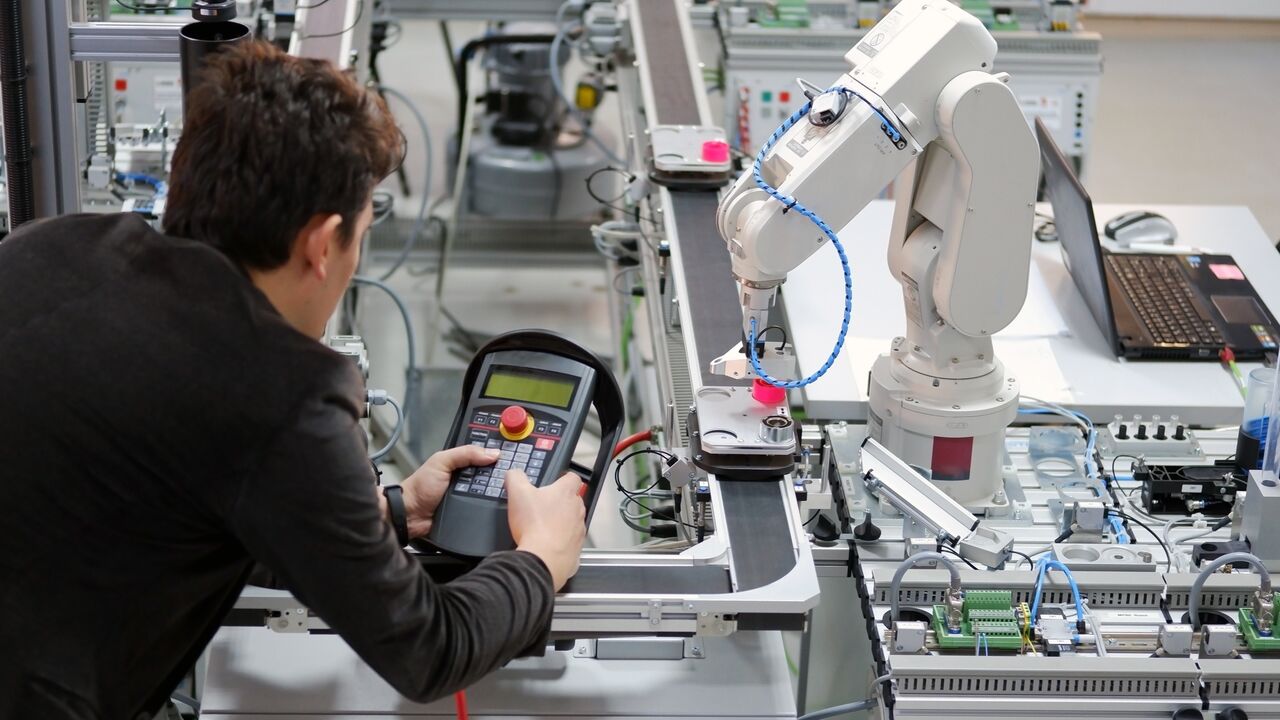Artificial intelligence (AI) is revolutionizing industry: from efficient production and predictive maintenance to smart logistics, AI is changing all areas of the value chain. But with innovation also comes challenges such as regulation, ethical issues and security. Find out how the EU AI Act is influencing the industry, what opportunities and risks AI entails and how companies can use this technology to remain fit for the future.
The rapid development of artificial intelligence (AI) has ushered in a new era of innovation in recent years. From automation to decision-making, AI is changing the way companies work, design their processes and manufacture products. Especially in industry, a core sector of the global economy, AI is unleashing its enormous potential by optimizing production processes, using resources more efficiently and enabling completely new business models.
The fourth industrial revolution, often referred to as Industry 4.0, is characterized by technologies such as the Internet of Things (IoT), big data and AI. These technologies act like gears that interlock and create a symbiosis to make industrial processes smarter, faster and more flexible. AI is at the heart of this and is bringing about a profound transformation – from development to production and logistics.
This text takes a comprehensive look at how AI is being used in industry, the benefits and challenges it brings and how companies can benefit from it. Finally, we take a look into the future and show which trends and innovations will continue to shape the industrial landscape.
